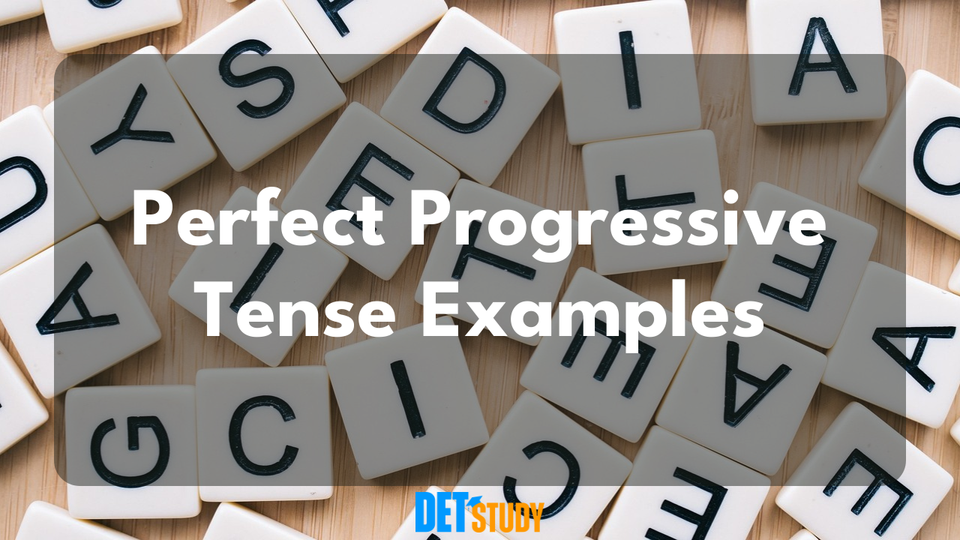完了進行形を徹底解説!表現力を磨く例文で文章力を高める

完了進行形:その構造と使い方を理解する
完了進行形への導入
完了進行形(perfect continuous tenseとも呼ばれます)は、完了相と進行相を組み合わせたものです。過去に始まり、ある期間継続し、現在も続いているか、現在に影響を及ぼしている行動を説明します。この時制は、活動の継続期間や連続性を強調します。⏳
主な形と使い方:
- 現在完了進行形: (過去から始まり現在も続いている、または現在と関連のある行動を説明します。)
例: - "She has been studying for three hours." - "They have been playing soccer since 2 PM."
- 過去完了進行形: (過去の別の出来事の前に過去に進行中だった行動を説明します。)
例: - "I had been working for five years when I got promoted." - "By the time we arrived, they had been waiting for over an hour."
- 未来完了進行形: (未来の出来事や特定の時間の前に進行中である行動を説明します。)
例: - "By next year, she will have been living here for a decade." - "We will have been traveling for 10 hours by the time we reach our destination."
覚えておきましょう: これらの時制は、行動の継続期間とそれが時間の経過とともに他の出来事にどのように影響するかを強調します。「for」、「since」、「by」のような時を表す表現を使って練習し、流暢さを高めましょう。🚀
これらの時制を演習や会話例で練習することは、英語の理解と流暢さを高めるのに役立ちます。「for」、「since」、「by」、「until」のような時を表す表現と関連付けることで、その使い方を強化することが有益です。
公式クーポンコードでDuolingo English Testの費用を節約しましょう完了進行形の構造を理解する
完了進行形を理解するために、それぞれの形を見ていきましょう。これは、完了相と継続相を組み合わせて、時間の経過に伴う行動の継続期間を示します。各時制は、「have/has/had/will have been」と動詞の「-ing」形を使用します。
現在完了進行形
- 構造:
have/has been+ verb-ing - 使い方: 過去に始まり現在も続いている、または現在に影響を及ぼしている行動に用います。
例: - "I have been reading this book for two weeks." - "She has been learning French since January." - "They have been working on the project all day."
過去完了進行形
- 構造:
had been+ verb-ing - 使い方: 過去に進行中で、別の過去の出来事が起こる前に終了した行動に用います。
例: - "He had been jogging every morning until he moved away." - "We had been discussing the plan for hours before we agreed." - "She had been working at the bakery for a year before her new job."
未来完了進行形
- 構造:
will have been+ verb-ing - 使い方: 特定の未来の時点または出来事まで継続する行動に用います。
例: - "By next summer, I will have been studying at the university for three years." - "In December, he will have been working there for a decade." - "They will have been volunteering at the shelter for a month by the time we visit."
この時制は、行動の開始、その継続期間、そして現在または未来への関連性を結びつけます。これを習得することで、複雑な時間の関係や、さまざまな状況における継続的な行動を表現するのに役立ちます。習うより慣れろ!✨
現在完了進行形の例
この時制は、過去から始まり現在も続いている、または現在と関連のある行動を説明します。「have/has been」と動詞の「-ing」形を使用します。
今すぐ英語を練習しましょう例:
-
"I have been studying for my exams all week."
-
"She has been playing the piano since she was six years old."
-
"They have been working on this project for several months."
-
"We have been waiting for the bus for forty minutes."
-
"The kids have been enjoying the summer camp this week."
-
"He has been running every morning."
-
"You have been doing great work this year."
時を表す表現との使い方:
この時制は、「for」(期間)や「since」(開始点)を使って、過去から現在への継続性を強調することがよくあります。「Lately」も、最近頻繁に行われている行動を示します。
- "For" は期間を示します:
"I have been watching TV for three hours."
-
"Since" は開始時間を示します:
-
"She has been wearing glasses since she was a child."
-
"Lately" は最近頻繁に行われた行動に用います:
- "He has been sleeping poorly lately."
この時制を効果的に使うことで、進行中の関連する行動とその継続期間が強調され、コミュニケーションに深みが加わります。練習はその使い方を内面化するのに役立ちます。👍

過去完了進行形の例
この時制は、過去の別の行動や時間の前に完了した、過去に進行中だった行動を説明します。継続期間を強調し、「had been」と動詞の「-ing」形を使用します。
例:
-
"I had been studying for hours before the power went out."
-
"She had been living in Paris for a year when she got the job offer."
-
"They had been arguing about the new policy until they reached an agreement."
-
"We had been waiting at the bus stop for thirty minutes before the bus arrived."
-
"By the time Mark arrived, we had been cooking for two hours."
-
"The children had been playing outside when it started to rain."
-
"He had been reading a novel before the class started."
時を表す表現との使い方:
この時制は、「before」、「when」、「by the time」、「until」のような表現を使って、過去の行動の継続期間と連続性を示します。
- "Before" は中断を示します:
-
"She had been practicing before the concert began."
-
"Until" は継続を示します:
-
"We had been waiting until the guests arrived."
-
"By the time" は終了点を強調します:
- "By the time he called, I had been pondering over the issue for hours."
この時制と時を表す表現を習得することで、過去の行動の順序と継続期間を記述する能力が向上し、物語の流れが豊かになります。📖
未来完了進行形の例
この時制は、未来の特定の時点まで継続する行動を説明し、その継続期間を強調します。「will have been」と動詞の「-ing」形で構成されます。
無料英語練習例:
-
"By next month, I will have been working here for five years."
-
"She will have been studying for three hours by the time her friends arrive."
-
"They will have been traveling for 48 hours by the time they reach their destination."
-
"We will have been living in the city for a decade before we consider moving."
-
"By next spring, the organization will have been operating for half a century."
-
"He will have been training for the marathon for six months by race day."
時を表す表現との使い方:
「by」、「for」、「when」のような時を表す表現は、未来の特定の時点までの継続期間を強調します。
- "By" は未来の時点で進行中の行動の完了を示します:
-
"By the end of the year, I will have been saving money for a new car."
-
"For" は行動の継続期間を特定します:
-
"He will have been playing the guitar for ten years by the time he joins the band."
-
"When" は進行中の行動の後に来る未来の行動を導入します:
- "When the project launches, I will have been working on it for over a year."
この時制を理解することで、特に節目となる出来事までの行動について、未来のシナリオを正確に伝えるのに役立ちます。練習は会話やライティングの流暢さを助け、明確さを加えます。📈
DET Study は、形容詞や副詞を活用して文法スキルを強化することに焦点を当てた15,000以上の豊富な練習問題を提供します。これらの的を絞った教材で定期的に練習することで、Duolingo English Test に自信と正確さを持って臨み、望むスコアを達成できるようにします。
🎯 もっと練習が必要ですか?専門家によるリソース、15,000以上の練習問題、AIを活用したライティングとスピーキングのフィードバックについては、DETStudy.com をご確認ください。

